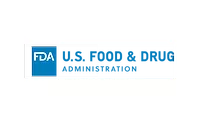Nearly 300 Chobani Consumers Report Illness to FDA
Source: MagicValley.com (Times-News)
Although two months have passed since rumors first surfaced about moldy yogurt cups from Chobani’s Twin Falls [Idaho] plant, droves of people continue to report illnesses to the U.S. Food and Drug Administration (FDA), an FDA spokeswoman said Tuesday.
Reports of illness from tainted Chobani yogurt have more than doubled over the past two weeks. The FDA has received nearly 300 unconfirmed reports of illness since Sept. 10, when the initial report was at 89, said spokeswoman Shelly Burgess.
The FDA inspected the yogurt facility in Twin Falls on Sept. 5 and did not find food-safety law violations, Burgess said.
That’s why the FDA did not issue a mandatory recall, she said. Burgess declined to confirm or deny any investigation into Chobani.
The company voluntarily recalled 35 varieties of its yogurt from stores nationwide nearly a month ago. A Chobani spokeswoman told the Times-News in early September that 95 percent of the affected product had been destroyed.
At least three consumers have contacted the Times-News since then, saying they were violently ill for days after consuming Chobani yogurt.
Looking for quick answers on food safety topics?
Try Ask FSM, our new smart AI search tool.
Ask FSM →
A class-action lawsuit was filed against Chobani in California earlier this month, alleging the company hadn’t “taken the proper precautions,” leading to retail profit loss and widespread illness, reported classactioncentral.com.
Chobani spokeswomen repeatedly have sidestepped questions about how the yogurt was tainted, what the company is doing to avoid another outbreak of mold, and why illnesses still are being reported long after the affected cups were removed from stores.
Mike Rozembajgier, an analyst with ExpertRECALL, cited five flaws with Chobani’s response to its crisis:
- Chobani didn’t have a plan when its product needed to be removed so, with no established processes, the recall was very inefficient.
- Despite news reports describing customers’ observations of their defective yogurt cups, Chobani insisted this was not a food safety issue.The inconsistent messaging confused consumers and made the company appear untrustworthy.
- While responses to a Chobani Facebook post illustrated the problem’s importance to customers, Chobani responded with only one relevant Facebook post and tweets that simply directed customers to the company website. Quickly addressing affected parties mitigates the risk of the issue spinning out of control.
- Chobani tried to conduct a quiet withdrawal instead of a recall. In a recall, transparency with regulatory bodies such as the FDA is critical. This ensures that the recall meets all requirements and therefore allows the recalling company to return to business quickly and safely.
- Response to customer complaints has not been swift. Customers are complaining about Chobani’s response time, indicating a lack of communications management. Leveraging a call center can be a way to quickly and effectively manage a high volume of customer inquiries.
Several public health officials and a food scientist with the University of Idaho told the Times-News in early September that the type of mold found in the affected yogurt cups was only harmful to people with compromised immune systems.
The affected yogurt cups have the code 16-012 and expiration dates from Sept. 11 to Oct. 7.
The FDA encourages people to report any concerns related to Chobani yogurt to their local FDA recall coordinator. A list and contact numbers are available at fda.gov.







